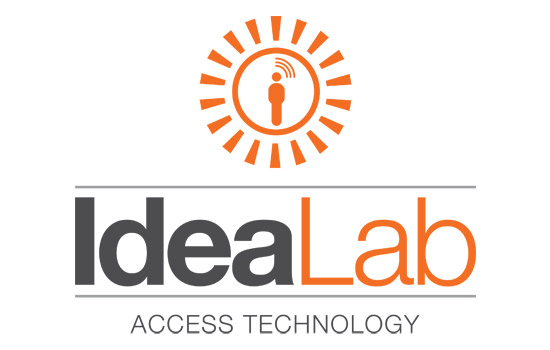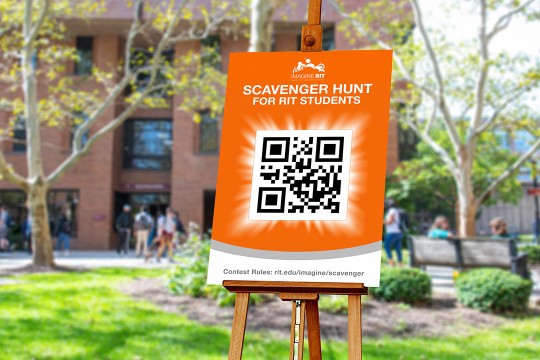IdeaLab@RIT aims to help those with disabilities
Students brainstorming to solve problems for local agencies
Three local agencies serving individuals with disabilities seek to benefit from the innovative problem solutions conceived this weekend at Rochester Institute of Technology’s IdeaLab focusing on access technology.
The IdeaLab@RIT is designed to have multidisciplinary student teams brainstorm solutions to unique problems related to the use of technology to improve the lives of the disabled. Projects derived from previous IdeaLabs have advanced into real products, services or even businesses. In the past, students participating in RIT’s IdeaLab used their concepts and found sponsors to help develop them, as well as their résumés.
Students registering for this event should meet at 8:30 a.m. Saturday and be prepared to brainstorm on a team until 5 p.m. Their work will continue Sunday at 10 a.m. Lunches will be provided.
Teams will present their ideas 1-3 p.m. Sunday in RIT’s Golisano Hall, room 2400. The presentations are open to the public.
This is the third IdeaLab@RIT. Two previous ones focused on health care.
This year’s challenges:
Heritage Christian Services
- Design and develop a social network for people with developmental disabilities and/or find adaptive ways to connect to existing networks, using prompts and feedback that foster independence at home, school and work.
- Imagine and design a fun and interactive game that promotes hygiene for people with developmental disabilities and other special needs.
Al Sigl Center
- How might we design an object that would make it easier to transfer people from the driver’s seat of a vehicle to their wheelchair or scooter?
- Many students in the Mary Cariola Children’s Center lack the ability to isolate their fingers to manipulate technology screens and require the use of a stylus. Many of the styluses are too short for students in wheelchair/standers to reach the iPad, touch screen or interactive white board. How might we design a new tool for students to interact and manipulate the screens based on physical and cognitive needs?
The Association for the Blind and Visually Impaired
- Design a fun and interactive game application for the blind and visually impaired.
- Individuals who are visually impaired rely on closed-circuit television on a daily basis to transmit a signal to a specific place. However, the current models in the market are not affordable or portable. How can we design a system that is below $400 while making it easier and more adaptable to the user?
RIT students may still register. For more information or to register, contact Sandra Turner.















